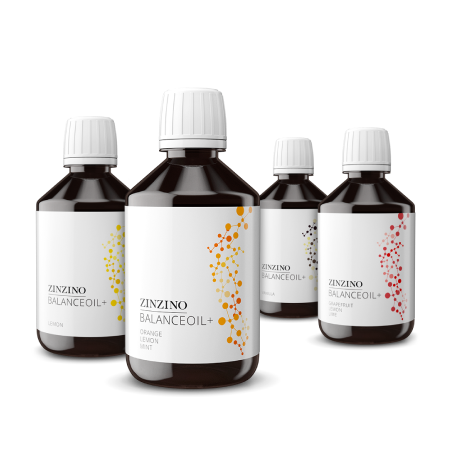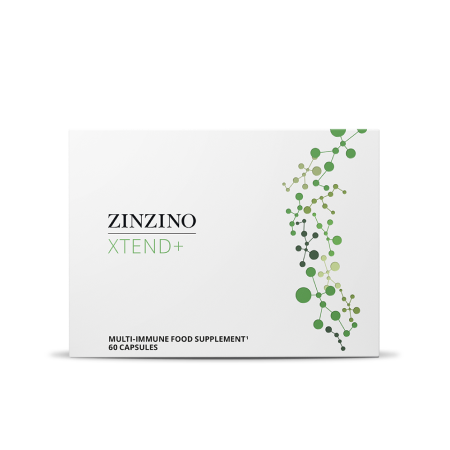Can you get all your nutrients from food?

Our modern diet is not what it used to be and capturing the vast amount of nutrients the body needs to function well through food alone is not always easy. It requires strategic choices, but even then, nutrient absorption isn’t guaranteed. Today, when every pleasure in the world is available at the push of a button, food is rated by convenience rather than quality. To obtain all the necessary nutrients in food today, you need to understand important vitamins and minerals, prioritize home-cooked meals with premium ingredients.
What are the essential nutrients?
A balanced diet is a life in balance. It’s a healthy spread of fruits, vegetables, wholegrains, and healthy protein. Aim for color and variety, use premium oils, and avoid sugary drinks and condiments. Make vegetables the hero of your plate. A well-rounded dinner is as simple as leafy greens and avocado, topped with olive oil (filling up your plate) with salmon on a bed of rice (on the other half).
The nutrients you should aim for in your food choices include the three pillars – protein, carbohydrates, and fats – plus the essential vitamins and minerals:
- Vitamins A, C, D, E, K
- B Vitamins: B1 (thiamine), B2 (riboflavin), B3 (niacin), B5 (pantothenic acid), B6, B7 (biotin), B12, and folate
- Calcium
- Phosphorus
- Potassium
- Magnesium
- Iron
- Zinc
- Iodine
- Copper
- Manganese
Why are nutrients important?
Collectively, nutrients in our foods help meet the body’s needs. They are vital to support your overall health, energy, and regeneration. A host of issues can occur if the body is out of balance, which is why keeping in tune with your specific nutrient needs is the key.
Essential nutrients are appropriately named because the body can’t generate its own vitamins and minerals. It must be sourced through diet. Fatty acids are one example. They are vital sources of energy and building blocks of fat in our cells that keep our body, brain1 and heart2 healthy and functioning. Of all the different types of fatty acids, only two have been declared essential to human health: Omega-6 and Omega-3. We can’t create these fatty acids on our own, which is why they are such an important part of our diet.
Fatty acids fuel and build our bodies
When we digest our food, fatty acids are absorbed into the blood and our cell membranes. Omega-3 and Omega-6 fill multiple biological functions in our body, keeping our cells fluid and flexible. Omega-6 is mostly found in meat, poultry, eggs and most vegetable oils. Omega-3 is also a natural antioxidant and most easily found in oily fish, green, leafy vegetables and plant oils.
Our modern diet contains too much Omega-6’s and not enough Omega-3’s. Finding a way to rebalance these two essential fatty acids in the food we eat is key to keep our health in check. Complementing your diet with Omega food supplements might help you strike an adequate ratio between these essential fatty acids and move towards a healthier, more balanced life.
Types of nutrients (micro and macro)
These essential fuel sources belong in one of two categories: micro and macronutrients. Macronutrients, as previously mentioned, are the pillars, the building blocks of your diet – protein, carbohydrates, and fats.
These macronutrients will govern most of your meals. Micronutrients are all the vitamins and minerals, as listed above. Both groups of nutrients are important and cannot be neglected.
Essential nutrients you find in food
Understanding your own, specific dietary needs will help govern food choices. This is where personalized nutrition comes into play, as every body is different. Take a scientific and confidential, at-home dried blood spot test such as the BalanceTest to find out the current status of your body and what supplements you might need.
For your macronutrients, the best sources of protein are meat, dairy, legumes, nuts, seafood, and eggs. For carbohydrates, opt for pasta, rice, cereals, breads, potatoes, milk, and fruit. Fats are obtained through oils, butter, avocado, nuts, seeds, olives, meat, and seafood.
Great sources of vitamins include fruits and vegetables, grains and cereals, full-fat dairy, egg yolks, and seafood. Getting your blood tested to understand your specific essential nutrient levels can help inform which foods to eat more (or less) of.
Most common nutrient deficiencies
In today’s fast-paced society, nutrient deficiencies can go unnoticed. But your body has a way of whispering if something’s wrong. Build a relationship with it and learn what it’s trying to ‘tell’ you. A nutrient deficiency is fixable, especially in the age we’re in of taking ownership of our health. The western diet is conducive to a micronutrient deficiency. The most common nutrients that are lacking in our food include: iron, iodine, Vitamin D, Vitamin B12, calcium, Vitamin A, Vitamin C, magnesium, folic acid, and essential fatty acids.


Steps for a balanced nutrition
This is where scientifically proven, test-based nutrition and tailored food supplements become so important. A synchronicity of science and nature, helping balance your body from within.
Take a look at products such as the all-natural Polyphenol Omega food supplements from Zinzino. The global health and wellness brand is driving the next generation of nutrition and has redefined the concept of fish oil by adding extra virgin olive oil to ensure optimal absorption in your body. Their signature range of BalanceOils+ feature powerful polyphenols with antioxidant capacity that helps the Omega-3’s do their job to safely restore the fatty acid balance, protect your body from oxidative stress and support normal heart and brain function.
Xtend+, Zinzino’s advanced multi-immune food supplement is a unique fusion of 22 vitamins, minerals and phytonutrients (plant-based antioxidants) that will counterbalance your modern diet. All the essential nutrients in one capsule and a very efficient, natural way to empower your body with nutrients that support bodily functions and contribute to a normal immune system3.
Better health is personal. Make sure to take the guesswork out of healthy living and power your body.
* These statements have not been evaluated by the Food and Drug Administration. This product is not intended to diagnose, treat, cure, or prevent any disease.
1. DHA contributes to the maintenance of normal brain
DHA bidrager til at vedligeholde en normal hjernefunktion. Anprisningen må kun anvendes for fødevarer, der mindst indeholder 40 mg DHA pr. 100 g og pr. 100 kcal. For at anprisningen skal kunne anvendes, skal der gives oplysninger til forbrugeren om, at den gavnlige effekt opnås med et dagligt indtag på 250 mg DHA. Når mødre indtager docosahexaensyre (DHA) bidrager det til den normale udvikling af hjernen hos fosteret og ammede spædbørn. Gravide og ammende kvinder skal oplyses om, at den gavnlige effekt opnås ved daglig indtagelse af 200 mg DHA ud over det anbefalede daglige indtag for omega-3-fedtsyrer til voksne, dvs.: 250 mg DHA og EPA. Anprisningen må kun anvendes for fødevarer, der mindst giver et dagligt indtag på mindst 200 mg DHA.
2. DHA and EPA contribute to the normal function of the heart
DHA og EPA bidrager at vedligeholde normal hjertefunktion. Anprisningen må kun anvendes for fødevarer, der som et minimum er en kilde til EPA og DHA i henhold til det, der er angivet under anprisningen KILDE TIL OMEGA-3-FEDTSYRER på listen i bilaget til forordning (EF) nr. 1924/2006. For at anprisningen skal kunne anvendes, skal forbrugerne informeres om, at den gavnlige effekt opnås ved et dagligt indtag på 250 mg EPA og DHA.



Share this page
Or copy link